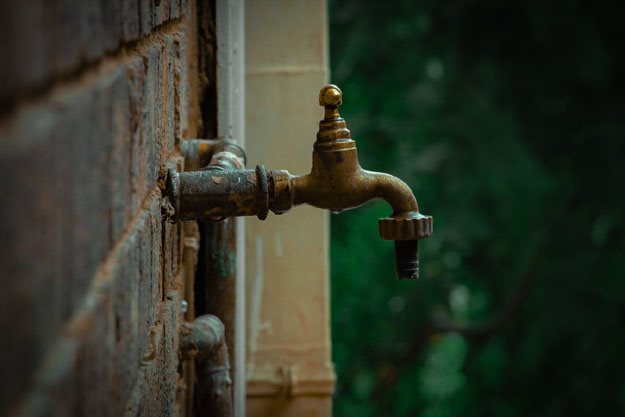
Top stories






More news

















Logistics & Transport
Uganda plans new rail link to Tanzania for mineral export boost









“A combination of conservation management, rainwater harvesting, greywater reuse, and the reuse of treated effluent from centralised and decentralised facilities will help to address the issue of water scarcity over the long term,” say Drs Wyhan Jooste and Amoré van Zyl from the Department of Industrial Engineering at Stellenbosch University and the South African Air Force respectively.
They developed a model that provides insight into and an understanding of the potential long-term effects of water retention and recycling within the City of Cape Town’s urban water system to alleviate water scarcity. The findings of their study were recently published in Development Southern Africa.
The researchers say annual groundwater abstraction is restricted by abstraction capacity, while the limit that is being put on the use of groundwater aims to prevent the over-exploitation of natural water resources.
“Currently, only 5-10% of the wastewater (sewage water) received by the city’s water reticulation system is treated and reused for daily consumption.”
The researchers say they developed a system dynamics model to evaluate intervention and policy decisions over the long term in support of reusing and retaining wastewater streams within the city’s water system, instead of discarding or underutilising these streams.
They add that the modelling ultimately aims to provide insight about the reuse and retention of water streams, under climate and rainfall variability, to alleviate water stress in the city in a sustainable manner.
“Our modelling results provide evidence that policy interventions for retention and recycling of water within the urban water system have the potential to contribute to alleviating water stress over the next 20 years. The results also show that water scarcity in the city requires unique and innovative solutions to ensure economic, social, and environmental sustainability and growth.
Water from centralised and decentralised wastewater treatment plants, rainwater and stormwater harvesting, and greywater reuse are all plausible alternatives to constrained surface and groundwater supply sources.
Although several of these waste streams are reused on a small scale in a private capacity, our model allows for the investigation of impacts associated with larger, policy-driven changes to the urban reuse system. For example, non-potable water can be derived from water waste streams, untreated rainwater, groundwater and surface water resources and be used for toilet flushing, outdoor cleaning and irrigation.”
The researchers also developed and compared five scenarios to simulate possible policy interventions. The scenarios test the effect of supplementing municipal water supply with alternative retained and recycled water sources over the simulation period 2001 to 2040.
The business-as-usual scenario incorporates existing water management and conservation initiatives, including planned augmentation projects aimed at addressing the deficit in the water supply. These projects include incremental actions to increase water supply by 350,000,000l a day over the next 25 years.
The second scenario evaluates the implementation of rainwater harvesting interventions and the third looks at the impact of using greywater to supplement the total water supply for both domestic and industrial consumption.
The fourth scenario investigates the use of potable quality treated effluent to supplement municipal water supply, evaluating the effect of decentralised wastewater treatment plants on water supply stress. In the fifth scenario, the impact of utilising all the interventions from the other four scenarios are simulated simultaneously.
The researchers say the fifth scenario is the only one resulting in a water stress of below one for the duration of the simulation period, which means that total municipal water supply capacity is more than the demand by domestic and industrial users.
“Using available data from 2017, the simulation results indicate that a potential saving of 57,300,000m3 of water or 57,300,000,000l could have been achieved in 2017 through a combination of continued water conservation measures, planned augmentation of water supply and the extensive implementation of installed systems for rainwater harvesting, greywater reuse, and decentralised wastewater reuse in both domestic and industry sectors.”
“However, there is a significant cost associated with these systems and therefore the developed model serves to provide decision support to policymakers for balancing benefits and costs,” they add.
The researchers say the results also highlight the continual rise in water supply stress due to forecasted population and economic growth in the city. Although water supply stress can be managed through the application of conservation measures such as water restrictions, this may negatively impact other socio-economic areas.
“It is evident from the research that innovative solutions are required to ensure future availability of water to meet the growing demand. The implementation of water retention and recycling initiatives can, however, play an important role in alleviating water supply stress in the future, and warrants further consideration and research.”